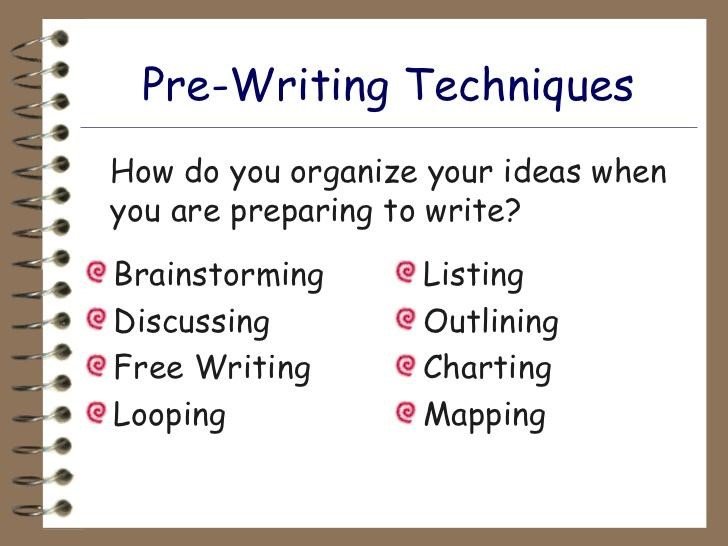Writing with SMEs
March 8, 2017
As a marketing specialist, you recognize that SMEs (subject matter experts) are critical to effective content marketing. They’re authorities on your company’s products and services. Without them, your company couldn’t run—and it would be nearly impossible to create detailed content that showcases your company’s expertise.
But if you’ve ever had to collaborate with one of these experts to produce a piece of thought leadership content, you might know that convincing them to share their knowledge—especially in writing—can be challenging at times.
Whether you are planning a new marketing campaign, seeking to raise your company’s digital profile, or venturing out on your own as a thought leader, you need SMEs on your team. Developing a strong partnership with your SMEs can help you write valuable content that benefits both you and your customers.
There is a wealth of online information about working with subject matter experts. Here is a compilation of some best practices that have helped other marketers, and may help you, generate more SME and SME-enabled content.

Meet them where they are—literally and figuratively.
You may be familiar already with SMEs who are very active communicators within your company and on social media. Seek them out! You’ll already have insights on their interests and areas of expertise, and they might be more receptive to a writing project than other SMEs.
For the less active, you will need to exert a bit more effort to get a feel for their comfort level with writing and their preferences for working collaboratively.
Before starting, or deepening, your efforts to partner with SMEs to write, you might want to seek out other teams in your company—sales, public relations, training—who have experience working with SMEs. Some members of these teams no doubt will have tips that might prove useful to you.
A guide to working with SMEs to develop e-learning materials, for example, notes that a SME could be heavily vested in content that already exists. They may resist new ideas about how to present information, a possibility you’ll need to address before launching a project with them.
Get to know your SMEs and the issues that matter to them.
This will help you target topics that they can elaborate on for your customers.
Ask to be copied on the SMEs’ emails and collect other examples of their writing, such as documentation related to their work, their LinkedIn profiles, and any formal presentations they’ve given recently. Attend their working meetings, or just hang out in their spaces to get a sense of their immediate priorities and what they see coming in their field and for the company.
From there, you’ll need to communicate directly with the SMEs to explore those topics in more detail.
Daniel Burstein of MarketingSherpa suggests five questions that content marketers can ask SMEs to get the ball rolling, with the goal of gathering information your customers will want to consume and share:
- How will the [a new product or service] help [target audience]?
- What challenges have you helped customers overcome recently?
- How have [industry developments] affected [target audience], and what should they do about it?
- A [job title] in our LinkedIn Group wanted to know [question?].
- I’ve heard a lot of people in the industry talking about [target keyword]. For example, [other thought leaders in the industry] said [something you’ve read while doing industry research]. What is your take on this?
These kinds of questions can form the basis of impromptu chats or informal idea-sharing sessions. Providing brief written summaries of these encounters for your SMEs to review might relieve some of their writing burden while engaging them in the creation of useful content. Asking SMEs to react to and edit your own high-level attempt to explain your company’s product or service could be another form of burden sharing.
Conduct formal interviews.
Be sure you to do your homework and prepare thoroughly for interviews so that you do not waste your SME’s time. Preparation should include conducting keyword searches on the SME’s area of expertise, gathering information on the SME’s professional background and experience, and sending out the interview questions ahead of time. Brendan Cottam, writing for B2B marketers, provides a good example of keyword research and questions aimed at making the most efficient use of your expert’s time.
Maximize, Maximize, Maximize!
Once your expert has provided writing, or data, start maximizing their contributions to create content that your target audience will want to read and share.
The Content Marketing Institute defines content marketing as:
“A strategic marketing approach focused on creating and distributing valuable, relevant, and consistent content to attract and retain a clearly-defined audience—and, ultimately, to drive profitable customer action.”
To this end, be creative in finding ways to convert your experts’ contributions into useful information for your customers.
Identify the superstars.
In cases where your SMEs already are competent communicators, convert their written products into formats that you can promote inside and outside the company:
- Share slides from their conference presentations.
- Edit their oral presentations into short online videos.
- Post the executive summary and excerpts from their white papers.
Give the less confident a gentle nudge.
Some SMEs may just as soon let you do the heavy lifting. These less enthusiastic writers may be willing to provide content—qualitative or quantitative—that you can then edit, reformat, and post. For the poorest writers, you might consider using the editing process as an informal tutorial or providing more formal tutorials, taking care to focus on the mechanics of communicating the message while respecting them as substantive experts.
The concept of prewriting—the thinking and planning that precede drafting a written product—can help overcome anxieties about writing and boost reluctant writers’ confidence.
You can draw upon the wealth of online college-level instructional material available today, material that walks you through pre-writing, drafting, revising, editing, and publishing.
Resources such as Duke University’s Writing Studio and MIT’s Comparative Media Studies/Writing will help you tailor your tutorial to the needs and preferences of your SMEs. For example, outgoing, talkative types might enjoy brainstorming sessions, while the more quietly cerebral SMEs might enjoy a hands-on mapping exercise. Check out images of pre-writing for inspiration.

In partnering with SMEs, especially reluctant writers, it will be especially important to mine your conversations and interviews for nuggets of valuable content. In her article on working with SMEs, Jessica Miller of PR 20/20 lists “20 marketing opportunities from 20 minutes with a SME,” including:
- Sharing key points from interviews with your company’s blog authors, customer service representatives, and sales teams.
- Recording podcasts featuring SMEs’ answers to interview questions.
- Using content from interviews to draft high level one pagers, including infographics and tip sheets to share across marketing, sales, and service teams.
Measure and Reward
Before launching any major initiative to get your in-house SMEs to write more, think about how you will measure your efforts. You also might want to consider how, within your company’s culture, you will recognize outstanding contributions from these experts. Once you’ve uploaded content that your SMEs have authored or inspired, Gillin recommends:
- Putting tools in place to measure views, shares, comments, likes, downloads, and other metrics of engagement.
- Making sure everyone on your team is actively upvoting, sharing, commenting, and retweeting.
- Featuring SMEs’ writing in company blogs and company publications.
Whether you’re starting fresh or building upon existing strategies, coaxing your SMEs to write more, giving them a shout-out when they do, and putting in some additional effort yourself could well produce results that both you and your customers will value.






























